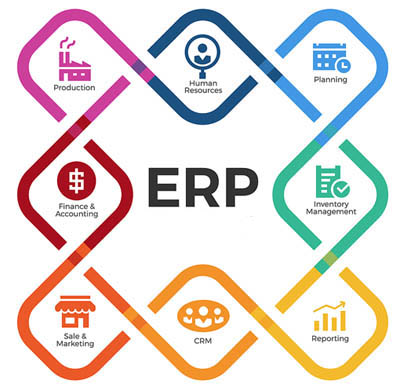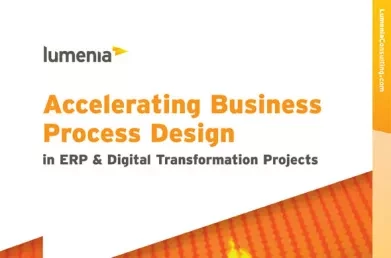Business Process Design and Cloud ERP
Click Play for a 30 second video summary of this blog Business Process Design and Cloud ERP.
During one of my presentations at our most recent on-line ERP HEADtoHEAD™ event a member of the audience raised an interesting question.
My presentation was about the importance of focusing on business process design in advance of starting an ERP project (see 5 Reasons to Focus on Business Process Design Prior to Implementing ERP for a previous blog on this topic).
The question posed was: “We are planning to implement a cloud ERP solution based on best practices – is there any point in thinking about business process design in this case?” I provided a brief answer to this on the day, but thought it was a good question and that it was worth expanding on the answer that I gave.
The logic underpinning the question is clear: if the ERP solution is based on best practice processes then all we need to do is adopt those processes as part of implementing the system – there is no need to spend time thinking in advance about how the future processes will work. So, in these circumstances is business process design unnecessary?
The answer is that it depends on the ERP solution, the scope of the ERP project, the complexity of the business processes and the ability of the organisation to accept the level of process change that a cloud ERP solution might bring. Let’s looks at each of these points in turn.
The ERP Solution
Most ERP vendors claim that their solutions are based on best practices. And the truth is that a lot of the functionality offered by the different solutions is based on process assumptions that are broadly similar. However, many ERP solutions do not have underlying process flows that show how the different business process steps connect and that can be presented to potential users so that they can understand the planned future state processes. If the ERP being considered does not have such process flows, then there is often significant value in documenting the flows with the business users.
ERP Project Scope
Depending on the scope of the ERP project, a full end-to-end process flow may not be covered by the ERP. For example, if the ERP is to be deployed alongside a CRM that’s used for estimating and quotations, then the full Orders to Cash process will not be covered in the ERP project. Similarly, if the HR module of an ERP system is to be implemented alongside existing Applicant Tracking and Learning & Development solutions, the full Hire to Retire process will not be covered in the ERP. This means that opportunities for improvement considering the full end-to-end process will potentially be missed.

Business Process Complexity
Many business processes have levels of complexity that go beyond the standard business process flows that are presented by ERP vendors as standard, or best practice flows. For these processes at least, it is worth spending time in advance of the ERP project to see if the processes can be simplified. If they can, then there is a better chance that a broader set of ERP solutions will meet the requirements, which increases buyer choice. If they can’t then at least the implementation proposals received from ERP vendors during selection will be more grounded in reality.
Ability to Accept Business Process Change
The flip side to implementing a cloud ERP and adopting all of the standard process flows that come with it, is that the organisation must be willing to accept the level of change that this will most likely cause. If the organisation is relatively new or is coming from a world of Excel and manual processes, anything offered by the new system is likely to be seen as an improvement, and therefore change is usually accepted readily. For more mature organisations with more embedded practices and more complex process flows this is often not the case. In these circumstances, spending time in advance of the ERP project agreeing how the new future state processes will work, will make the process of managing change much easier.
Conclusion
In summary, for smaller organisations with relatively basic business processes, where the ERP is going to cover most areas of the business, it may make sense to simply implement a cloud ERP solution without thinking too much about future state process flows in advance. For more larger organisations, with more complex and established business processes, which may not be fully in scope for the new ERP, then it usually makes sense to spend time on design of at least some of the business processes in advance of the ERP project.
This blog was written by Sean Jackson, Managing Director at Lumenia. If you would like further information on Business Process Design or any other aspects of ERP please send an e-mail to Sean Jackson.


